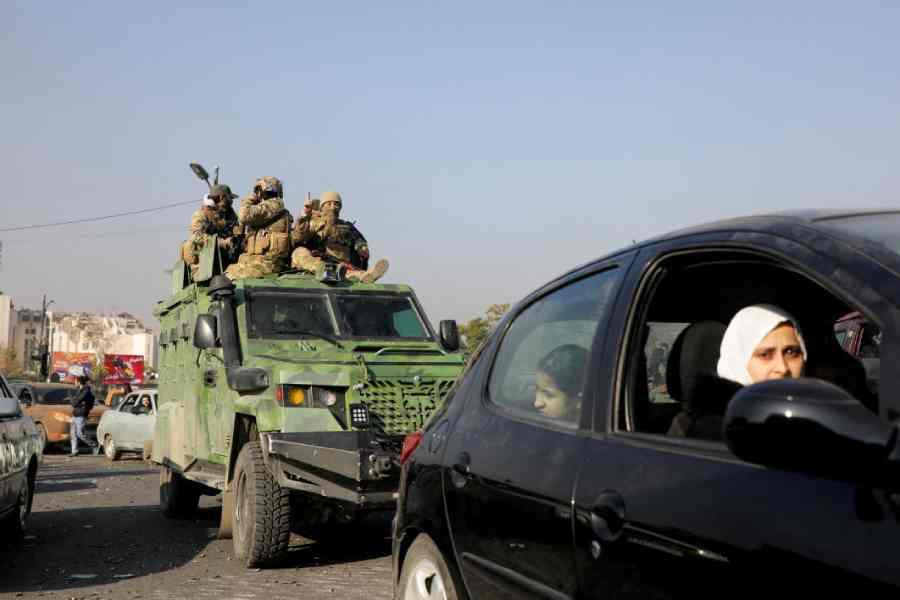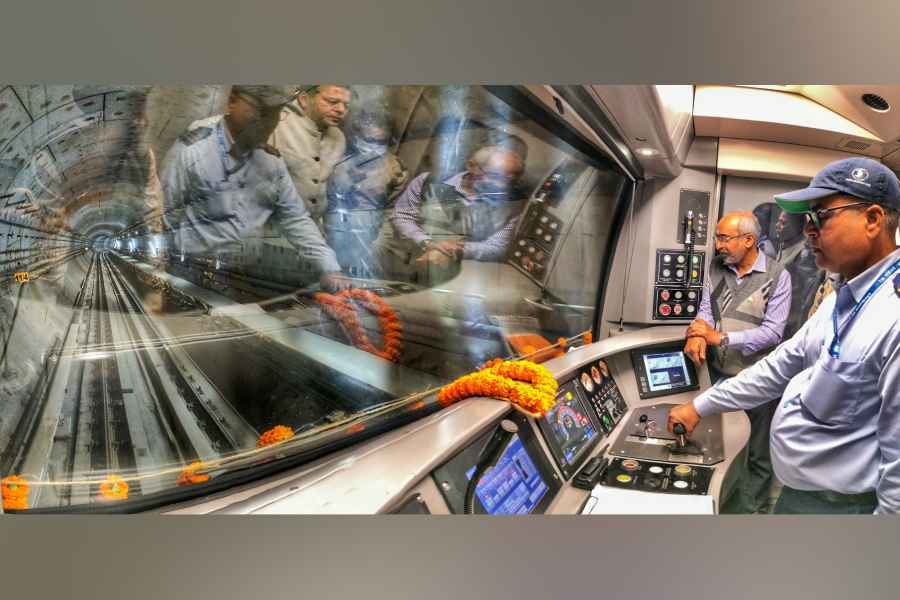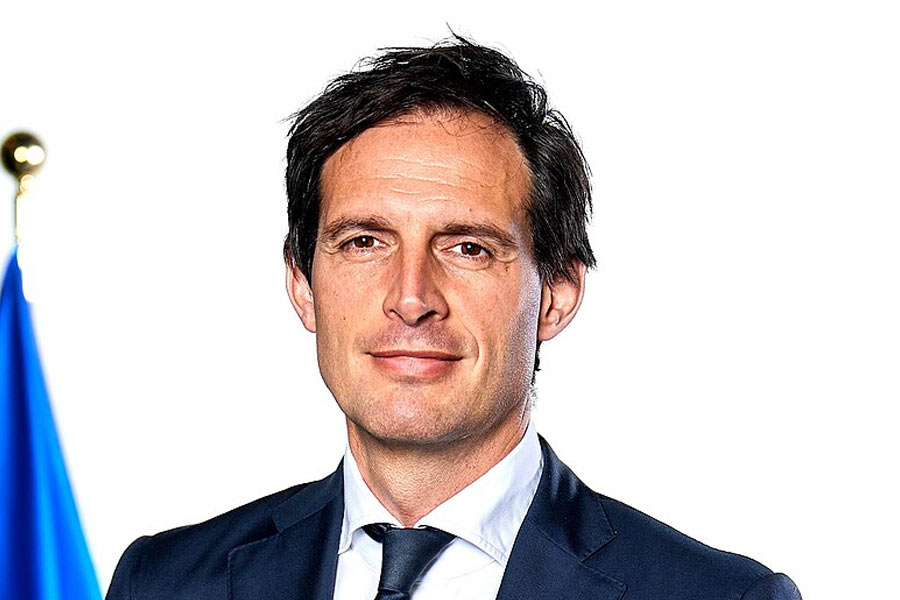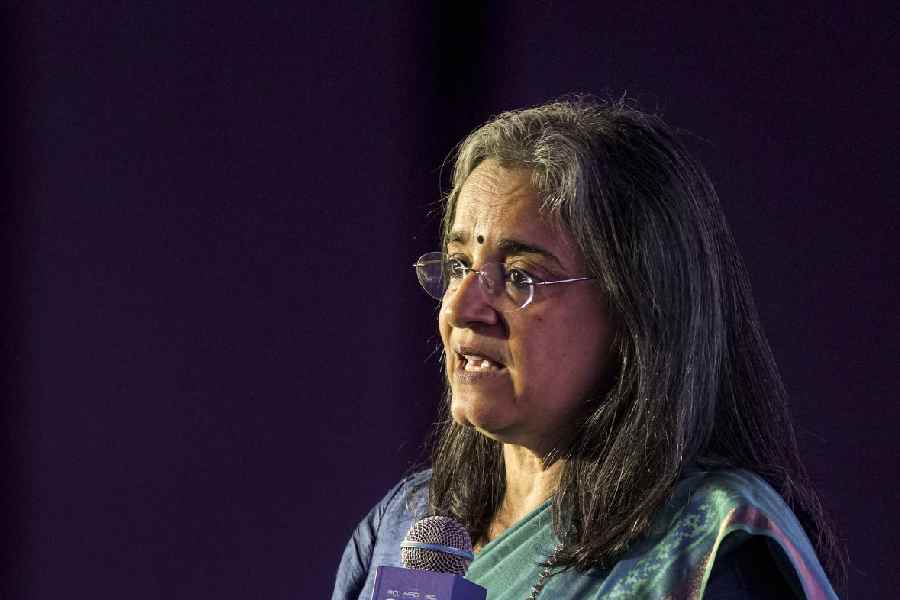Syrian Prime Minister Mohammed Jalali told Al Arabiya TV on Monday that he had agreed to hand over power to the rebel “Salvation Government”.
The rebels who ended the Assad family’s brutal rule began asserting control over the capital on Monday, announcing that a new government would begin work immediately, as its fighters took up positions outside public buildings and directed traffic in a show of their newly claimed authority.
Major questions remained unanswered, including who would lead the new rebel government, as millions of Syrians and the wider world struggled to process the stunning end to the Assad family’s decades-long reign. Euphoria around the ouster of President Bashar al-Assad over the weekend mixed with uncertainty about the future of country and the intentions of the rebels who now hold the capital, Damascus.
The rebels, led by an Islamist leader with the nom de guerre of Abu Mohammed al-Jolani, face the complex task of extending their control over a country with deep ethnic, sectarian and religious divisions. Their military leadership said in a statement on Telegram that rebel forces were “about to finish controlling the capital and preserving public property”, and that a new government would begin work “immediately” after being formed. It did not specify who would lead the new government.
Syrians who had fled a 13-year civil war clogged the roads from Turkey and Lebanon to return home, as did people who had been displaced within the country. But some who had supported the Assad government fear they could face retribution. On Monday, there were early signs of the lawlessness — broken windows of cars and shops — that many fear could spiral and grip the country.
Prime Minister Jalali had earlier on Monday said most cabinet ministers were still at work after rebels overthrew President Assad, but some state workers failed to return to their jobs, and a United Nations official said the country’s public sector had come “to a complete and abrupt halt”.
There were already signs of the difficulties ahead for the rebel alliance now in control of much of the country.
The rebel command said on Monday they would not tell women how to dress. “It is strictly forbidden to interfere with women’s dress or impose any request related to their clothing or appearance, including requests for modesty,” the command said in a statement on social media.
Nearly two days after rebels entered the capital, some key government services had shut down after state workers ignored calls to go back to their jobs, a UN official said, causing issues at airports and borders and slowing the flow of humanitarian aid.
Israel said it carried out airstrikes on suspected chemical weapons sites and long-range rockets to keep them from falling into the hands of extremists.
Israel also seized a buffer zone inside Syria after Syrian troops withdrew.
In northern Syria, Turkey said allied Opposition forces seized the town of Manbij from Kurdish-led forces backed by the US, a reminder that even after Assad’s departure, the country remains split among armed groups that have fought in the past.
The Kremlin said Russia had granted political asylum to Assad, a decision made by President Vladimir Putin. Kremlin spokesperson Dmitry Peskov declined to comment on Assad’s specific whereabouts and said Putin did not plan to meet with him.
Damascus was quiet on Monday, with life slowly returning to normal while most shops and public institutions were closed. In public squares, some people were still celebrating.
Civilian traffic resumed, but there was no public transport. Long lines formed in front of bakeries and other food stores.
There was little sign of any security presence, and Associated Press reporters saw a few SUVs on the side of a main boulevard that appeared to have been broken into.
In some areas, small groups of armed men were stationed in the streets.
A video circulating online showed a man in military fatigues holding a rifle attempting to reassure residents of the Mezzeh neighbourhood in Damascus that they would not be harmed. “We have nothing against you, neither Alawite, nor Christian, nor Shia, nor Druze, but everyone must behave well, and no one should try to attack us,” the fighter said.
In southern Turkey, hundreds of Syrian refugees gathered on Monday at two border crossings, hoping to return home.
Jalali, who remained in his post after Assad and most of his top officials vanished over the weekend, has sought to project normalcy.
“We are working so that the transitional period is quick and smooth,” he told Sky News Arabia TV on Monday, saying the security situation had already improved from the day before.
He said the government was coordinating with the insurgents, and that he was ready to meet rebel leader al-Jolani, who made a triumphal appearance on Sunday at a famed Damascus mosque.
Syrians who only days ago were working at all levels of the bureaucracy in Assad’s government were adjusting to the new reality.
At the Court of Justice in Damascus, which was stormed by the rebels to free detainees, Judge Khitam Haddad, an aide to the justice minister in the outgoing government, said judges were ready to resume work quickly.
But a UN official said some government services had been paralysed as worried state employees stayed home.
The public sector “has just come to a complete and abrupt halt”, said UN Resident and Humanitarian Coordinator for Syria Adam Abdelmoula, noting, for example, that an aid flight carrying urgently needed medical supplies had been put on hold after aviation employees abandoned their jobs.
Separately, a Syrian Opposition war monitor said a top aide to Assad’s brother, Maher, was found dead in his office near Damascus.
A video that circulated on social media purportedly showed Maj. Gen. Ali Mahmoud covered with blood and with his clothes burned.
The Britain-based Syrian Observatory for Human Rights said it was not clear if he was killed or died by suicide.











